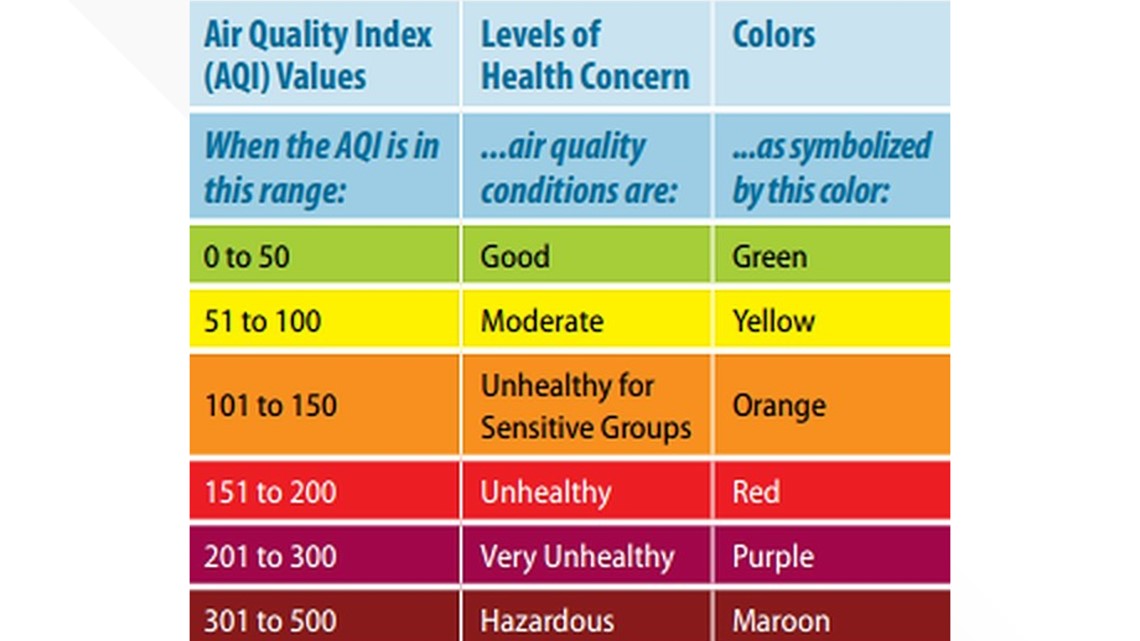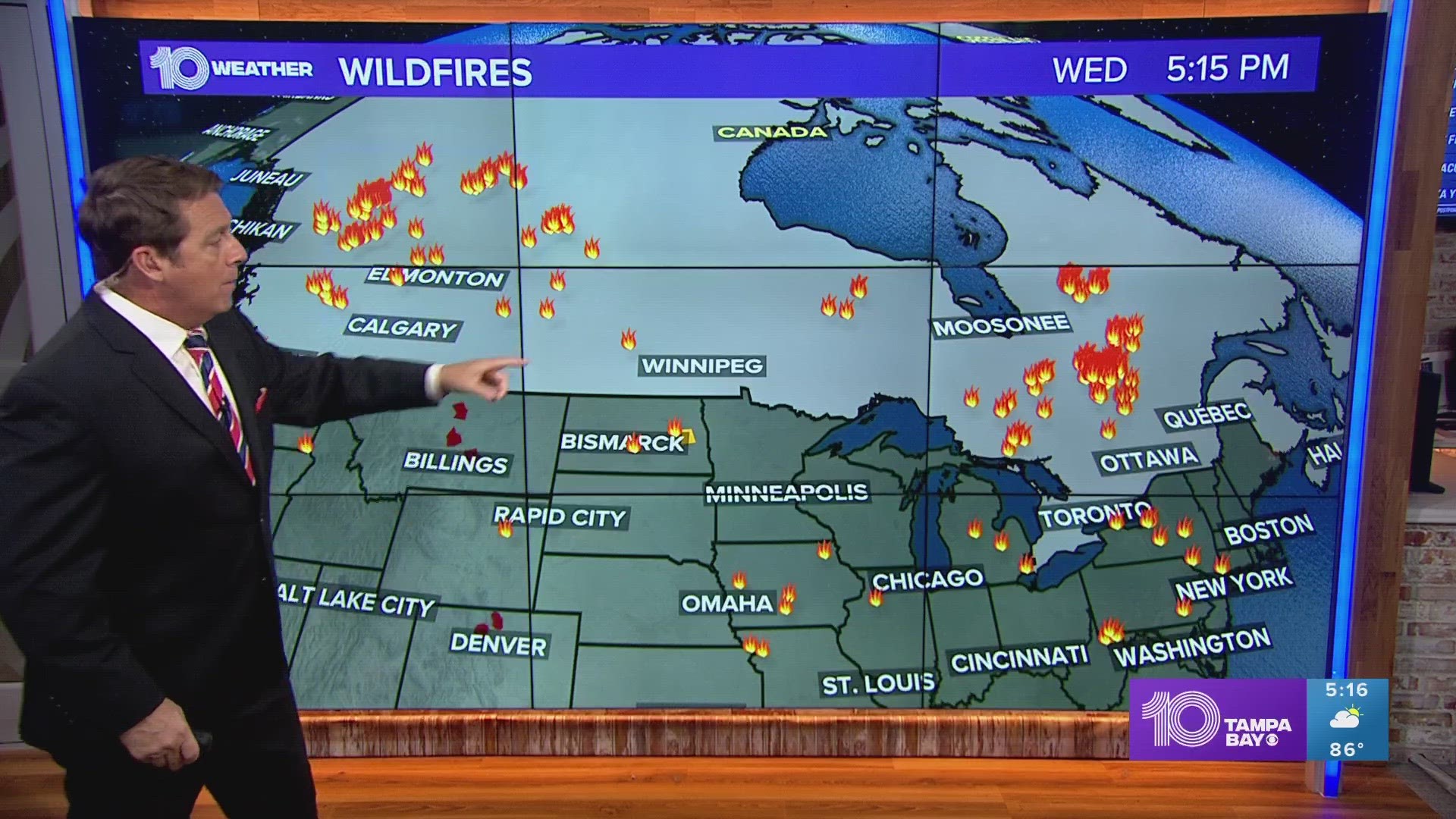ST. PETERSBURG, Fla. — As northeast states deal with the haze and smoke from Canadian wildfires, air quality has reached hazardous levels in New York and Pennsylvania prompting many to put on pandemic-era face masks or stay indoors.
Some areas have reached Air Quality Index (AQI) levels in the 300s and 400s, ranging from unhealthy to hazardous. But what is AQI, and how does AQI work?
AQI is an index for reporting daily air quality. It's even something you can monitor online or on your smartphone in the weather app. AQI measures how clean or unhealthy your air is.
"The AQI is calculated for four major air pollutants regulated by the Clean Air Act: groundlevel ozone, particle pollution, carbon monoxide, and sulfur dioxide," according to a guide from the United States Environmental Protection Agency. "For each of these pollutants, EPA has established national air quality standards to protect public health."
So how does it work, and when should you be worried?
AQI measures on a scale from 0 to 500. The higher the AQI value, the more unhealthy the air is and the greater the health concern. AQI values range from good, moderate, unhealthy for sensitive groups, unhealthy, very unhealthy and hazardous.
"AQI value of 50 represents good air quality with little or no potential to affect public health, while an AQI value over 300 represents air quality so hazardous that everyone may experience serious effects," according to the AQI guide.
The guide shares simple tips to reduce your exposure to unhealthy air including reducing how much time your spend doing outdoor activities when the AQI levels are of concern.


U.S. National Weather Service meteorologist Zach Taylor said the current weather pattern in the central and eastern U.S. is essentially funneling in the smoke. Some rain should help clear the air somewhat in the Northeast and Mid-Atlantic this weekend or early next week, though more thorough relief will come from containing or extinguishing the fires, he said.
Will the smoke make it to Florida? It's unlikely. While there will be a faint haze of smoke from the initial plume that moved out of the north last weekend, anything that is left over from that plume should mostly thin out as it mixes out over Georgia and Alabama, while attempting to approach northern Florida.
The Associated Press and 10 Tampa Bay Meteorologist Natalie Ferrari contributed to this story.

